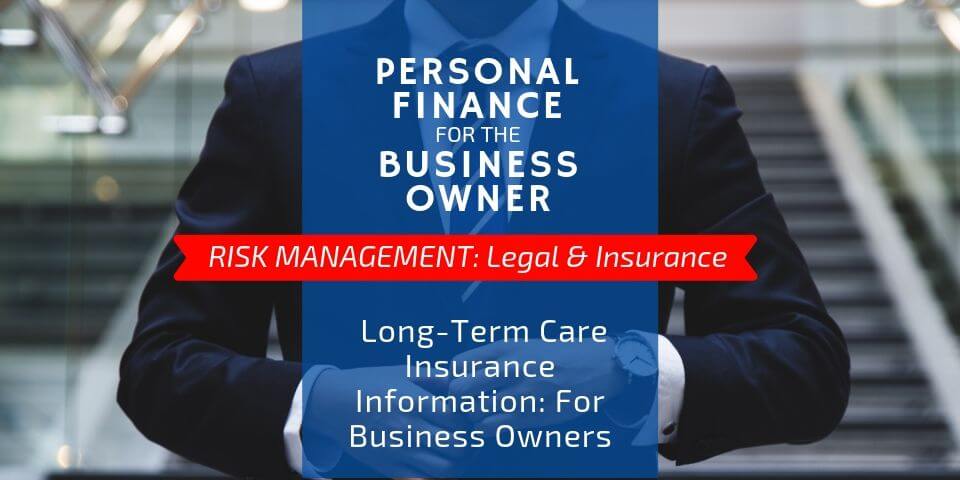
Long-Term Care Part II – Insurance Options For Small-Business Owners
September 12, 2019
9 Different Types of Trusts – A Financially Simple Overview
October 1, 2019Group Health Insurance for Businesses

In my last post, I uncovered some of the mystery about individual health insurance. With physicians’ fees, cost of treatment, and time lost due to illness, healthcare costs can add up quickly. So it’s vitally important as a business owner to protect yourself and your employees from these expenses as well as to provide them with the care they need to rebound as soon as possible. Just like individual health insurance, group plans can be confusing and are often vague in their pricing. It’s my goal to provide you with the group health insurance information that you need to make a confident and informed decision for your business’ needs.
Podcast Time Index For “Group Health Insurance For Businesses”:
- 01:08 – Group Health Insurance for Businesses, with Michael Crane
- 01:45 – What is Group Health Insurance?
- 02:49 – Types of Plans
- 06:40 – Different Plans for Different Groups?
- 08:56 – What else: Agents vs. Direct
- 12:50 – Full Coverage vs. Partial
- 14:28 – HRAs and Business Owners
- 16:55 – Large Businesses
- 18:20 – Crossing State Lines
- 19:46 – Making Changes
- 23:03 – Wrap Up
Many thanks to Michael Crane with the Crane Group in helping bring this article to you.
Group Health Insurance Information 101
Group health insurance can really be broken into two sub-groups, small group, and large group insurance. Small group insurance is for groups of less than fifty people, and the rates are based on the age and zip codes of the employees. In other words, the insurance provider will not usually underwrite each of the employees. Instead, they will base the premiums on what is common for the age groups in that region.
Another common insurance practice for small group packages are fully insured plans. With a fully insured plan, you pay the monthly premium and the insurance provider pays all of the claims. Recently, however, many small group insurances have begun to offer self-insured plans also known as level-funded plans. If you carry a level-funded plan, you pay the premium while self-funding some of the claims. When utilizing a self-insured or level-funded plan, medical underwriting will typically come into play.
When considering the differences between a fully insured plan and a level-funded plan, it is important to note that the employer chooses the deductible and the maximum out-of-pocket costs of a fully insured plan. The insurance company will usually present two or three different options, depending on the size of your group, for the employees to choose from. Such options are often labeled as bronze, silver, gold, or platinum, and offer progressively better benefits.
RELATED CONTENT: Individual Health Insurance 101
Policy Ethics
So what if you offer your employees one plan while opting to take a better plan for yourself? Is it wrong? The short answer is no. As long as you are following the proper guidelines, there is nothing unethical or wrong with having a different plan than that of your employees. However, if you decide you’re going to give Dan the Accountant a better plan because he has worked for you for longer, then there needs to be some clear outline for how an employee can attain such a benefit.
For example, let’s say Dan the Accountant has been with your company for fifteen years and has played a key role in your business. You want to reward him for his time and his loyalty, but you can’t simply give him a better plan than what you offer the rest of your staff. The government has eleven different criteria for class-based plans in order to prevent discrimination.
Agent Vs. Direct
Each year, every insurance provider is required to file their rates with the Insurance Commission in each state. A licensed agent is able to obtain this information and pass on any savings to their clientele. Despite this, many business owners go directly to the carrier to purchase their coverage. The problem with such a strategy is that most of the carriers aren’t going to check their updated rates when renewing your policy. Instead, they simply renew at the previous rate whether it has changed or not.
You might find yourself asking the question, “Well, can it be that big of a difference by the time I’ve paid the agent’s commission?” I have a client that pays 100% of the premiums for his employees. When I looked at his premiums, he was paying in excess of $140k per year in premiums. For a business that brings in a total income of roughly $1 million per year, that’s more than 10% of his earnings going towards insurance. His agent hadn’t looked at his policy in at least six years. We asked him to run some scenarios and he ended up dropping the premium from around $140k per year to about $30k per year. That is a massive amount of money saved by simply talking to an agent.
Usually, an agent will know what the new carrier rates are going to be by around October of each year. It is a good idea to begin the renewal conversation about three months before your renewal date.
Full Coverage Or Partial Coverage?
One thing a small business owner might consider is purchasing a fully funded plan for their employees, but to save on the cost of such a plan, you could buy a plan with a higher deductible. In order to offset some of the expenses your employees would incur, you might consider pairing that fully funded plan with a health reimbursement account or HRA.
Let’s say you have a $1,000 deductible, but your team is a really healthy group. You could then increase the deductible to $3,000, and pair it with the HRA. This would lower your monthly premiums because of the higher deductible, while also keeping your employees from feeling the sting of the higher deductible because they would be reimbursed for their out of pocket expenses up to a predetermined amount.
Another option is to buy a level-funded plan. One of the regulations of the affordable care act (ACA) is that a healthcare plan for a small business is that it can’t be rated according to your health. A level-funded plan allows you to get around that rule and is a good way to get a better rate for your group if they are all in good health.
The major difference between the fully funded plan and a level-funded plan is that you will cover some of the treatment costs in exchange for a lower overall rate with the level-funded plan.
So What About Large Businesses?
When you have more than fifty employees, you are considered a large business. The rules and regulations change, to some degree, when approaching a group health insurance plan in this case. As a large business, you actually have more options because customization comes into play. Most large businesses will offer three to four plans for their employees to choose from, and the rates are based on the health of the individual being insured.
Suppose you’re a large business owner with locations in multiple states, you want to make sure that your carrier has a solid nationwide network. Doing so will ensure that your employees receive equal benefit from their healthcare insurance.
Making Changes
Because of the way that most insurance companies are set up, you must have a minimum of two employees to have a group. The second employee cannot be the business owner’s spouse. Unlike an individual healthcare plan, a group plan for a business can be started up at any time. They are not bound to the open enrollment period. However, when you go to your agent to begin a new group plan for your business, they require copies of your LLC agreement, copies of your payroll, in order to make sure that you’re not simply trying to get around the regulations.
Which Plan Works Best For Your Group’s Needs?
I have given you the basic information so that you have an idea of what questions you should be asking, but in order to determine the best option specific to you and your employees, you need to speak with a licensed insurance agent.
Be sure to continue following along in our Risk Management for Business Owners series with our next installment on Last Will and Testaments.



